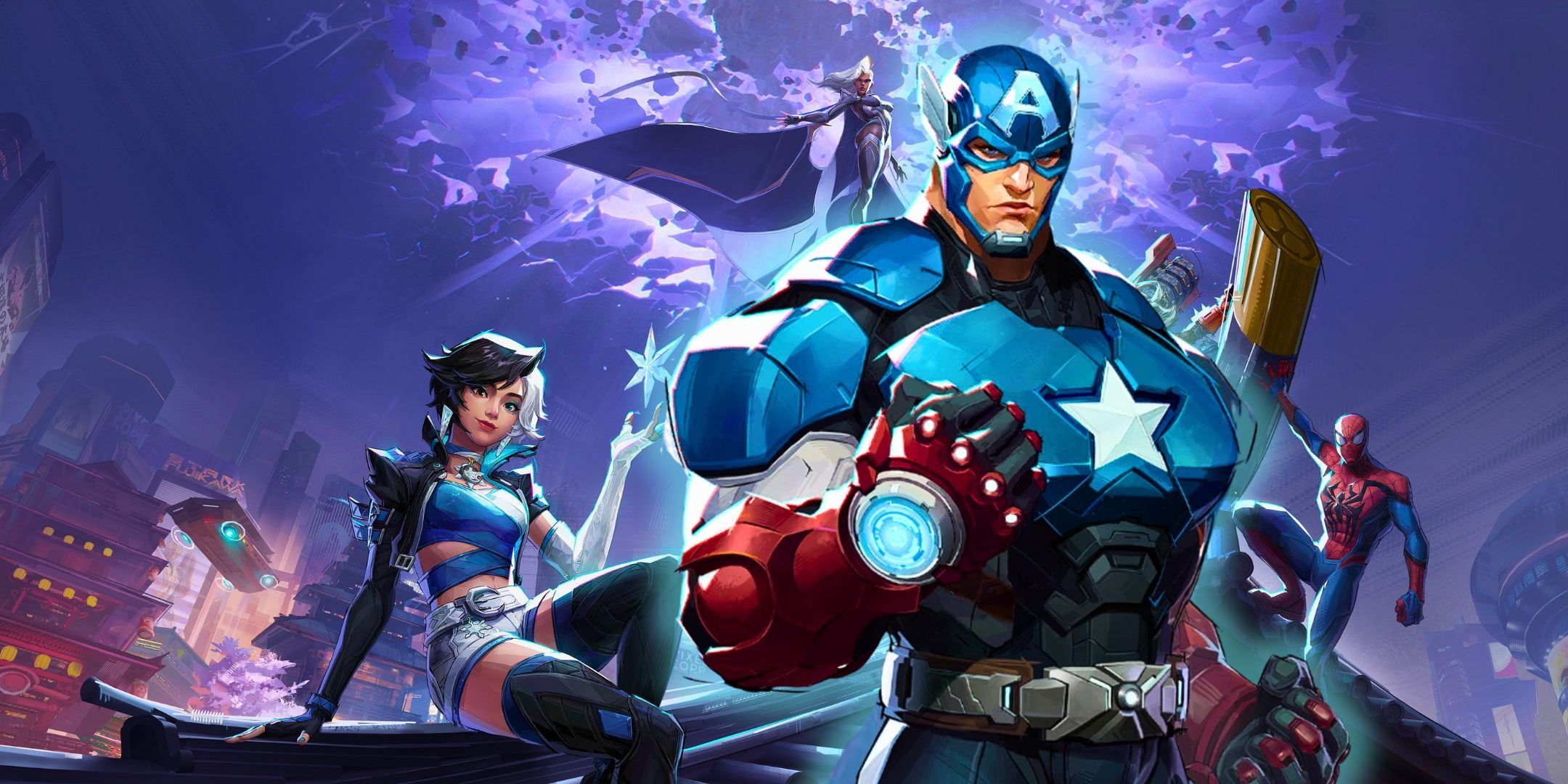An elderly woman turns to a camera over her shoulder and, staring into the lens, says without self-pity, “I’m dying.” Incarcerated men, unaccustomed to wearing suits and ties, anxiously adjust their attire in preparation for a daddy-daughter dance behind bars. A drag performance artist walks through Moscow streets, duct-taped in the colors of the Russian flag. Argentinian gauchos traverse a landscape at thrilling speed, photographed in black and white. A histrionic Nikita Khruschev bangs his shoe on a desk, synched to a jazz rhythm.
These are some of the startling images that remain with me as I think back on the year in documentary film. Despite the sluggish acquisition market, nonfiction filmmakers continued to unveil remarkable work, whether they landed distribution or not.
Typically, I can tell within the first minute or less if I’m in the hands of a filmmaker with the confidence and skill to create a unified whole – “a film that works.” Such was the case with Mati Diop, director of Dahomey. I immediately felt the gravitational pull of distinct and original storytelling. But on rare occasions, it can take me a while to realize I’m on the path to an exceptional artistic experience, as with Seeking Mavis Beacon. For the first 25 minutes of Jazmine Renée Jones’ debut film, I found myself at an utter loss to understand what I was seeing. But then I thought, hold on, this filmmaker is lighting a way through incredibly complex cultural terrain (I had a similar reaction to Sandi Tan’s 2018 documentary Shirkers, which baffled me for 25 minutes or so before I realized, wait a minute, this is genius).
With so many impressive and moving documentaries, it becomes very difficult to choose a top 10. Nonetheless, for a third year running, I will give it a go. Here they are in alphabetical order.
Black Box Diaries

In director Shiori Itō’s feature directorial debut, the Japanese journalist explores the cultural, political and legal context in which she went public with a sexual assault allegation against a prominent fellow journalist. At a press conference in which she revealed her allegations, many chose to avoid the substance of what she had to say and focus instead on her appearance, going so far as to criticize Itō for not fastening the top button of her blouse.
Black Box Diaries could have played out as a hard-hitting piece of investigative journalism, perhaps in the style of Kirby Dick and Amy Ziering (The Hunting Ground, The Invisible War). Itō, indeed, traces her diligent pursuit of justice but never loses sight of the emotional stakes of her journey. She does this through video diary entries recorded with the help of her producer, Hanna Aqvilin, and quietly powerful visual elements like cherry blossom petals floating on a dark pool of eddying water. These are not arbitrary images – the cherry blossoms evoke memories of the timeframe in which the sexual assault took place, in redolent spring.
Black Box Diaries will begin streaming on Paramount+ with Showtime on January 7.
Dahomey

French-Senegalese director Mati Diop announces herself as a rare documentary auteur with Dahomey, a riveting exploration of the meaning of artifacts looted from West Africa by France. In 2021, the French government reluctantly agreed to repatriate 26 royal treasures of the Kingdom of Dahomey (present-day Benin) carted off by French colonial troops in the late 1800s. Diop subtly conveys meaning through imagery – white hands packaging wooden effigies and thrones originally carved by Black hands, in preparation for transport home. And white “experts” telling Black workers in Benin how to handle the treasures as they reach their destination.
Diop departs from the strict orthodoxy of documentary film by imbuing the artifacts with human voice, narrated by five different actors. It’s an eerie and resonant touch that restores the latent power to pieces that had been deracinated and deprived of their ritual significance for over a century.
Dahomey is available with subscription to Mubi.
Daughters

No film packed a more emotional punch for me this year than Daughters (though there were rivals: The Remarkable Life of Ibelin, Will & Harper, and Super/Man: The Christopher Reeve Story). The film by Angela Patton and Natalie Rae takes us inside a Washington, DC jail where a program gives incarcerated men a chance to take part in a dance with their daughters. How crucial this is for the emotional wellbeing of fathers and daughters becomes clear as the film unfolds.
It’s so moving to see the men get ready to meet their daughters before the dance, adjusting collared shirts and suits, knotting their neckties – a practice poignantly unfamiliar to them. And when they first see their daughters all dressed up for the dance and get to embrace them – it’s one of the most touching scenes I’ve experienced in a documentary. Viewers can ponder, if they choose, how this film speaks to the harm caused by mass incarceration, which of course disproportionately affects Black men. As we see in Daughters, many more people are impacted by the unequal administration of justice than prisoners themselves.
Daughters is streaming on Netflix.
The Last Journey

There’s a notable lack of humor in documentaries, for reasons that hardly require explanation. Mercifully, there are exceptions, like Will & Harper and The Last Journey. The latter film, directed by Filip Hammar, centers on the director’s dad, Lars, a former French teacher in Sweden who, in retirement, has grown inordinately attached to his Belgian recliner (I had no idea the Belgians made such inviting armchairs). Despairing of his father’s physical decline and deepening depression, Filip and his friend and co-director Fredrik Wikingsson (the pair are popular TV personalities in Sweden) conspire to get the old man out of the house and on the road – to France. The trip abounds with delightful and humorous moments.
“Our entire life, France has symbolized joy,” Filip notes at one point. The family used to summer on the Riviera decades earlier (not that they’re wealthy; Lars presumably didn’t pull in many Swedish krona teaching high school). The country has always symbolized a kind of emotional freedom for Lars, and it’s heartwarming to see his spirits revive the closer he gets to the Mediterranean. Yet, this is not a film about finding the fountain of youth; Filip’s journey involves accepting that age has crept up on his father and there are limits on how much he can do to will it away.
One falls in love with Lars, admiring his values, his care for other human beings and how tightly he ties himself to an ethical code. In surprising and endearing ways, Filip pays tribute to his father and a life quietly, though nobly, lived.
The Last Journey can be streamed on the Filmstaden platform (hopefully with English subtitles available for those, like me, who require it).
No Other Land

No Other Land, the documentary by a collective of Israeli and Palestinian filmmakers, accomplishes something exceedingly rare – allowing viewers everywhere to experience what life is like for Palestinian villagers in the occupied West Bank. How can one not be moved seeing the anguish of young and old in the rural area of Masafer Yatta as their homes and schools are demolished by the Israel Defense Forces, who claim the land as a training zone? It’s edifying to witness in concrete terms how Israelis live under civilian law while Palestinians are subject to military rule, and it’s shocking to see Israeli settlers open fire on unarmed Palestinians, with apparent impunity.
The film foregrounds the unlikely friendship between the two filmmakers who appear on camera — Palestinian Basel Adra and Israeli Yuval Abraham — without implying that the solution to the Israeli-Palestinian conflict is for everyone to embrace and “just get along.” No Other Land reminds us that a peace movement still exists within Israel, however marginalized; it also underscores that no political settlement can be imagined without addressing systemic injustice.
No Other Land will play at Film Forum in New York City beginning January 31; it opens February 7 at Laemmle Royal in Los Angeles and Laemmle Town Center 5 in Encino, CA, as well select cities nationwide.
Porcelain War

“Resistance to evil must be uncompromising,” Slava Leontyev observes with quiet resolve in Porcelain War, the film he directed with Brendan Bellomo. The documentary shows the forms that resistance can take: by day, Leontyev trains Ukrainian troops to repulse Russian invaders. But his spare moments he devotes to art – the porcelain figurines he makes with his wife, Anya Stasenko (Slava sculpts the owls, “dragonlets” and other animals and Anya paints them in remarkable detail). “We use art to fight back,” Slava notes. “This is how we avoid erasure.”
In every respect, Porcelain War constitutes an artistic triumph – the photography by Andrey Stefanov, a painter-turned-cinematographer and dear friend of Slava and Anya’s; the animated sequences that bring Anya’s decorative designs to life; the naturalistic music by Ukrainian folk quartet DakhaBrakha. Even the war footage surprises with disturbing intimacy: I’ve never seen POV shots like those in the documentary, showing the curiously graceful descent of a mini-bomb toward a Russian armored vehicle below.
We will update with any information on streaming.
Queendom

When I first saw this film at SXSW in 2023, I was stunned by the artistry of Jenna Marvin, the Russian drag performance artist at the heart of the documentary. This is not drag as camp; Jenna’s performances seem like a direct expression of psychic pain. And the film directed by Agniia Galdanova shows the source of that pain: Jenna grows up in the remote Siberian town of Magadan, notorious in Soviet times as a transit hub to the Gulag. It’s icy in every way – a cold place to anyone who steps out of line, as Jenna boldly does in elaborate self-designed costumes.
After moving to Moscow to attend school, Jenna’s inherently political performative acts subject her to increasing hostility. But she will not back down despite the constant threat of violence from police and ordinary Russians on the street. Through her, we can imagine another Russia – a place of freedom of expression, artistic flowering, and acceptance of LGBTQ identities. But Putin’s invasion of Ukraine and subsequent strangulation of any form of dissent make it clear how far Russia veers from that ideal.
Queendom is available to stream on VOD platforms including Prime Video, YouTube, Apple TV+, Roku and more.
The Remarkable Life Of Ibelin

Benjamin Ree’s film tells the story of Mats Steen, a young man afflicted with Duchenne muscular dystrophy, a degenerative and terminal genetic disorder. His physical condition severely restricted his interactions IRL, but online he bonded with many people through the massively multiplayer role-playing game World of Warcraft. His parents were completely unaware of the incredible friendships he had formed there until after his death at age 25.
Mats dubbed his World of Warcraft avatar “Ibelin,” a brawny fellow who pursued life with gusto, free of the physical constraints that Steen faced. Digital logs of Steen’s activities and conversations with fellow players within World of Warcraft allowed Ree to re-create exactly what the young man experienced. It brought me to tears (and I could tell from sniffling around me at a film festival screening that I was not alone in this) to realize how many lives he touched through his empathetic presence. His WoW friends had no idea, until close to the end of his life, that he suffered from such a debilitating condition.
Ree structures the film with consummate skill, essentially telling Mats’ story multiple times through different perspectives. I was deeply impressed when he told me of some of his dramaturgical influences, including authors William Faulkner, Virginia Woolf and Fyodor Dostoyevsky. Most filmmakers confine themselves to cinematic reference points, but Ree has derived ingenious inspiration from some of the world’s greatest writers.
The Remarkable Life of Ibelin is streaming on Netflix.
Soundtrack To A Coup D’Etat

Wow, what a brilliant mind is Johan Grimonprez. I can’t believe the complex synthesis of politics, culture, and history that he achieves in his film Soundtrack to a Coup d’Etat. Grimonprez ties together events that might otherwise appear disparate: the nascent non-aligned movement among countries that wanted no part of the Cold War binary; the emergence of newly independent nations in Africa in the late 1950s and 1960s, especially in Congo, that suddenly tipped the balance of power in the United Nations General Assembly; what Soviet leader Nikita Khrushchev was attempting to express by famously banging his shoe on a desk at the UN; why the U.S. dispatched America’s greatest Black jazz musicians – Louis Armstrong and Dizzy Gillespie among them – to Africa to conceal its aims in Congo.
It’s a dazzling piece of erudition, but most importantly Soundtrack makes for an engrossing cinematic and musical experience. And it makes one mourn anew for Patrice Lumumba, the young and dynamic Congolese leader who became the first democratically elected prime minister of his country. Had he not been trapped in the tentacles of Congo’s colonial overlord Belgium or run afoul of an Eisenhower administration that saw him as an obstacle, or been betrayed by UN Secretary General Dag Hammarskjöld, he might have become a proto-Nelson Mandela. Instead, he was deposed and executed by Mobutu Sese Seko, the military man backed by the U.S. and Belgium who went on to rule Congo (which he re-named Zaire) with dictatorial power for decades.
Soundtrack to a Coup d’Etat will become available on January 7 through KinoLorber.com.
Sugarcane

Young filmmakers Julian Brave NoiseCat and Emily Kassie have crafted a documentary that reveals in personal terms the devastating impact of the abusive Indian Residential School System that operated in Canada and the U.S. for over a century. These schools, mostly run by the Catholic Church including St. Joseph’s Mission in British Columbia that NoiseCat’s grandmother attended, stripped Indigenous children of their language, traditions and identities. Children were routinely beaten, emotionally and sexually abused; investigations show that an untold number of girls at the schools were impregnated, some by priests. Sugarcane provides evidence that newborns were tossed into incinerators at St. Joseph’s Mission; NoiseCat’s own father, Ed Archie NoiseCat, miraculously avoided immolation as a baby only through the intercession of a groundskeeper who heard the infant’s cries.
The film transcends investigative journalism by showing the traumatic legacy of the school system on people like Rick Gilbert, former chief of the Williams Lake First Nation, who cannot quite accept the results of DNA tests that establish he was fathered by a priest at the school. The relationship of Julian and his dad Ed becomes the throughline of Sugarcane, as father and son take steps to heal – Ed from an inheritance of shame and guilt passed down from his mother, and Julian from abandonment by his father as a child.
Sugarcane is streaming on Disney+ and Hulu.
There are many more films I desperately wanted to include in my top 10. A more expansive list would surely contain Seeking Mavis Beacon; Gaucho Gaucho, directed by Michael Dweck and Gregory Kershaw; The Bibi Files, directed by Alexis Bloom; Pictures of Ghosts, directed by Kleber Mendonça Filho; A Photographic Memory, directed by Rachel Elizabeth Seed. I also loved Hollywoodgate, directed by Ibrahim Nash’at; Hasan Oswald’s Mediha; My Sweet Land, from director Sareen Hairabedian; Skywalkers: A Love Story, directed by Jeff Zimbalist; Music by John Williams, directed by Laurent Bouzereau; Frida, the portrait of Frida Kahlo directed by Carla Gutiérrez; Invisible Nation, directed by Vanessa Hope; Raoul Peck’s Ernest Cole: Lost and Found; and Look Into My Eyes, directed by Lana Wilson.
And I’m already pondering my top 10 list for 2025, which will likely feature three incredible films that premiered this year but haven’t yet made their awards run: Riefenstahl, directed by Andres Veiel; Elizabeth Lo’s Mistress Dispeller; and Suburban Fury, directed by Robinson Devor. Here’s to many more rewarding nonfiction cinematic experiences in the New Year!





/cdn.vox-cdn.com/uploads/chorus_asset/file/25821777/DSCF4473.jpg)



 English (US) ·
English (US) ·